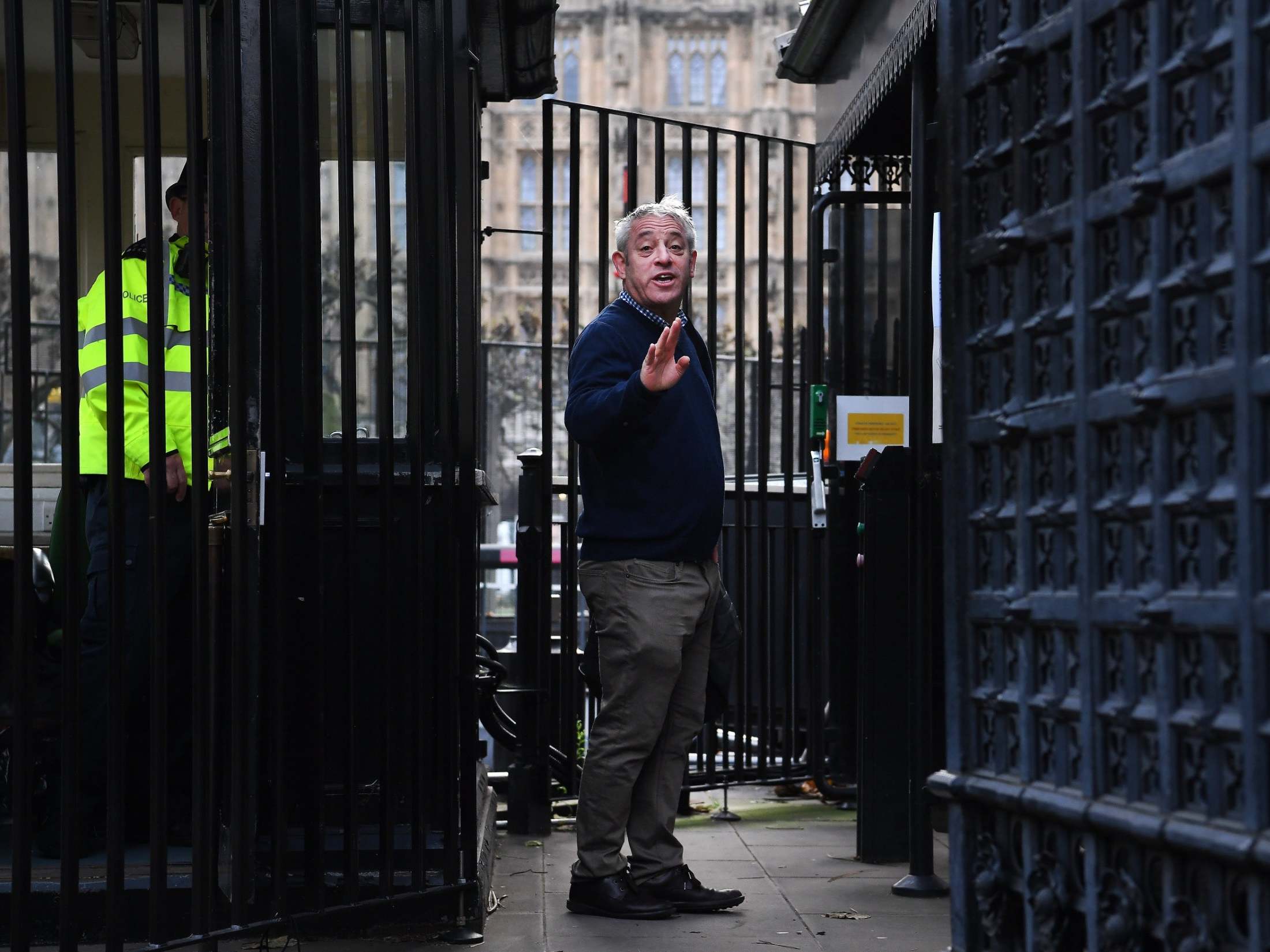Why John Bercow’s replacement as speaker is so important
Whoever is elected, they will play a huge role in the shaping of the next parliament, writes Sean O'Grady


It may be too soon to say it, but the next speaker of the House of Commons will most likely preside over less turbulent times than their predecessor, John Bercow, who is retiring after a decade-long stint in the job. Mr Bercow had to deal with four very different premiers, two hung parliaments, the stresses of a recession, the aftermath of the parliamentary expenses scandal and, of course, the endless constitutional crises provoked by Brexit.
The favourite for the job, Sir Lindsay Hoyle, is a highly experienced and well-liked deputy speaker. He is up against some distinguished competition for the distinguished post, which dates back to 1258: Eleanor Laing; Chris Bryant; Rosie Winterton; Harriet Harman; Meg Hillier; Edward Leigh; and Shailesh Vara.
As with Mr Bercow in 2009 the new speaker will be chosen via a series of secret exhaustive ballots. This means that the post cannot easily be “stitched up” by the government side informally whipping the most pliant of the available candidates.
When the votes are finished, a formal motion to accept the new speaker is put to the house for a public vote and this session will be chaired by the father of the house, ie the longest continuously serving MP (Ken Clarke, elected 1970), in the absence of a speaker. There is then a theatrical show of the new speaker “resisting” and being play-dragged from the green benches to the speaker’s chair.
The new speaker will have some important work to do. First they will need to regularise relations between the executive and the legislature. Mr Bercow had to respond to the wish of MPs to take control of the business of the house, and the inability, or unwillingness, of the government to transact its business when it lacked a majority. If the election on 12 December delivers a majority government, with a less divided governing party, then a more normal way of doing politics will resume.
Either way, the use of some of the more arcane extraordinary procedures allowed by Mr Bercow may be reviewed, and the leader of the house, Jacob Rees-Mogg, who is supposed to reflect the views of the Commons to the cabinet, and vice versa, has promised an unusual debate on Mr Bercow’s controversial record in office.
The new speaker might, though, be well advised to preserve Mr Bercow’s development of urgent questions and emergency debates, whereby backbenchers and opposition parties – including the smaller groups – could more easily hold ministers to account. It was one of the most striking of Mr Bercow’s innovations, and in stark contrast to some of his predecessors in the modern era, who tended to indulge the government’s wishes. A balance needs always to be struck, and each speaker will find their own, and express it in their own voice. None of the candidates seems to possess the flair for showmanship or taste for orotund rhetoric that Mr Bercow displayed.

The speaker also runs the House of Commons Commission, which is to say the domestic business of running the Commons as an institution. It is here that current issues around bullying, harassment, and the efficiency and security of the house from terror attacks and public demonstrations are discussed. They may be more mundane than some of the questions faced by the house, but cannot be neglected in a healthy democracy.
Last, the speaker has to ensure free and fair argument in the house (and in committees), protecting the rights of backbenchers on all sides in debates, questions and points of order (bogus or not), and ensuring that members and ministers alike stick to the point, and, more topically, encourage moderate language, a polite tone and a measured approach; though the bear pit atmosphere of the Commons makes this near impossible at times.
Mr Bercow allowed Prime Minister’s Questions to run on for an hour or more, and the prime ministers didn’t seem to mind; and he was scrupulous in making sure that all contributions to the house were heard “however long it took”. His successor will find their own way of leavening the mood and correcting honourable and right honourable members who are over-excited or over-noisy. Maintaining “order” is the core of the job. One way or another, Mr Bercow, who acquired unprecedented power and authority even as he was more and more attacked openly by some, will be a tough act to follow in more ways than one.
Join our commenting forum
Join thought-provoking conversations, follow other Independent readers and see their replies
Comments
Bookmark popover
Removed from bookmarks